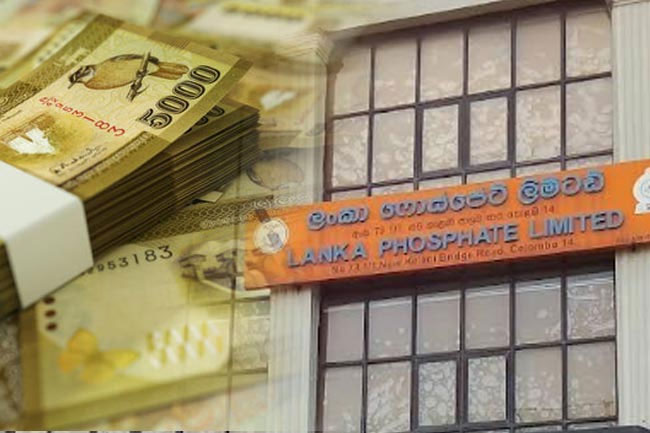By: Staff Writer
May 21, Colombo (LNW): The Lanka Phosphate Company (LPL) is under legal scrutiny following revelations of large-scale financial misappropriations and irregularities in the mining and sale of rock phosphate during previous administrations.
Court proceedings have been initiated, and investigations are being conducted by the Illegal Assets Investigation Division (IAID) of the CID, based on a complaint filed by a Nittambuwa resident.
At the heart of the probe is a controversial deal involving the export of 3,000 metric tons of rock phosphate to three companies under the former government.
This transaction allegedly caused a staggering loss of Rs. 2.7 billion to the state. The matter was recently brought before the Colombo Magistrate’s Court.
Additionally, Rs. 650 million was spent on constructing an 850-meter road within the phosphate deposit area, and a factory was built on land belonging to a temple in Kurunegala — all without conducting a proper feasibility study.
LPL holds exclusive rights to mine rock phosphate across 450 hectares in Eppawala, which houses a globally significant deposit estimated at 60 million metric tons. This deposit contains 33–40% of phosphorous pentoxide (P2O5), making it one of the richest natural phosphate sources.
The company currently produces Eppawala Rock Phosphate (ERP) and High-Grade ERP (HERP), mainly used for perennial crops such as tea, rubber, and coconut. However, for short-term crops like paddy and vegetables,
Triple Super Phosphate (TSP) is preferred — a fertilizer the country currently imports due to the lack of sufficient local production capacity.
To address this, LPL is working on manufacturing Single Super Phosphate (SSP), a viable local substitute for TSP. However, the plant’s current capacity cannot meet the national annual demand of 75,000 metric tons.
A senior finance ministry official stated that Rs. 9 billion is required to upgrade processing facilities to enhance phosphate solubility and meet domestic needs.
He emphasized that local production would be more cost-effective in the long run, considering the government currently spends Rs. 35 billion annually on imported phosphate fertilizers.
The Eppawala deposit, located in the Anuradhapura District, was discovered in 1971. A key challenge is the low solubility of the Eppawala rock phosphate, which limits its effectiveness for short-duration crops unless treated to increase its solubility.
Authorities are now working to uncover the full extent of the losses and mismanagement linked to this vital natural resource.

